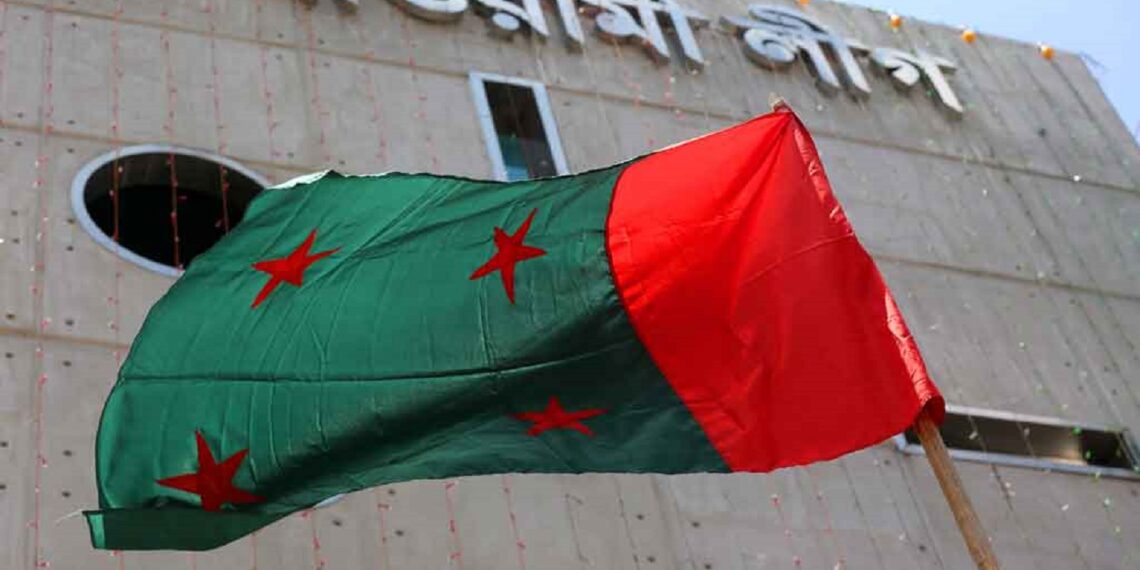Precisely 3,362 nomination papers – a staggering number by all accounts – were filed by Awami League MP hopefuls before the January 7, 2024, general elections. With the price of each nomination form pegged at Tk 50,000, the math is simple enough: the Awami League earned a neat sum of Tk 16.81 crore.
Meanwhile, on November 26, the party leadership released a list of 298 candidates who will officially contest the elections to the 12th Jatiya Sangshad. Curiously enough, Awami League President and Prime Minister Sheikh Hasina declared the same day that all other nominees – dummy candidates – were also eligible to contest election.
This has not only set the cat among the pigeons, Sheikh Hasina’s open invitation can potentially pit one hopeful against another and lead to fratricidal conflict among these prospective MPs each of whom will compete fiercely to get elected, regardless of how tainted the electoral process, or how contentious and disputed the exercise leading up to January 7, is.
Indeed, at least two instances of bloody violence among Awami League supporters have been reported, along with pre-election “voting” in Brahmanbaria and one other district. Intense intra-party and inter-nominee rivalries may erupt, spill out in the open and snowball into inter-group violence across Bangladesh in the days to come.
With the entire electoral process already under a cloud, the mild-mannered Chief Election Commissioner, Kazi Habibul Awal, addressing reporters in Dhaka on November 27, shared a few thoughts that can be summed up as curious at best and a reflection of real fears at worst.
“We (Bangladesh Election Commission) cannot respond in equal measure to the pressure that the US is applying on us. With its arms raised, they (the US) are poised and ready to strike. To protect our economy, our future and many other things, we have to ensure that the elections are free, fair and credible,” Awal said.
While this reflects a degree of fear of US punitive measures, Awal was matter-of-fact when he agreed that “no country, barring two or three, are truly sovereign. The manner in which the US can command us, we cannot do the same with the United States. This is a reality. To save my people and the country’s garments industry, the external forces’ demand for a free, fair and credible election free from malpractices must be met”.
ALSO READ US sticks to stand on Bangladesh ruling regime: Failure to comply will invite strong measures
Awal has been witness to all the machinations and chicanery employed by the ruling Awami League since before the electoral process began and certainly since the outbreak of violence on October 28 following which no less than 10,000 BNP leaders and supporters have been arrested and thrown into jails as part of a countrywide swoop by police and other law enforcement agencies.
Perhaps Awal, if not his other colleagues at the BEC, has begun to feel the pressure. Perhaps his conscience has begun to tug at his heart strings. And perhaps he has been overcome by a deep sense of remorse at the way the ruling Awami League has thrown caution to the wind and relentlessly moves towards a frightening denouement.
Clearly, the Awami League feels emboldened by the tacit support that the Indian establishment has already thrown in for a party and its beleaguered leader who is seeking a fourth consecutive term only to suppress the many willful acts of misdemeanours, corruption, police repression and wanton human rights abuses. With only “friendly” parties in the fray, the Awami League seeks to send out a message, no matter how unacceptable, that the forthcoming elections will be free and fair.
All eyes are now on the US even as its ambassador Peter D Haas, who was in Sri Lanka and then in his home country – ostensibly on holiday – returned to Dhaka earlier today. On the other hand, a piquant situation has arisen in Washington DC where Bangladesh’s envoy Mohammad Imran, who is on contractual service, has proceeded on indefinite leave.
The letter that he wrote to the US State Department says quite clearly that he “will be out of the country from 22 November (afternoon) 2023”. There is no indication of when Imran is scheduled to return to the American capital and resume his ambassadorial functions.
During his absence, Imran’s responsibilities will be undertaken by “Md. Mahadee Hassan, Minister (Economic)” and that the “Mission will notify the arrival” of Imran “in due course”.
ALSO READ How Bangladesh DGFI, NSI and SB forced Jatiya Party (Ershad) to contest elections
Bangladesh Foreign Secretary Masud Bin Momen sought to convey – unconvincingly – that Imran had proceeded on earned leave that was overdue, without commenting on the grave diplomatic situation that Bangladesh finds itself now.
Can a contractual official, irrespective of his seniority in Bangladesh’s officialdom, proceed on indefinite earned leave? More importantly, would it be wise and conscientious for the ambassador to leave station when the threat of American punitive measures looms large? What forced the Bangladesh government to advise Imran to go on leave? Was he deemed unfit to withstand the pressure? Or is it part of a cat-and-mouse game that Dhaka seeks to play with the US?
Whatever may be the ruling Awami League’s compulsions or motivations for adopting such defensive tactics, Haas’ return to Dhaka is expected to raise levels of optimism in Bangladesh. Whether the US will actually walk the talk and continue to tighten the screws on the Sheikh Hasina regime will unfold in the days, if not weeks, to come.
The US could act now by deploying its “tool kit” of remedial measures as a rush job or it could adopt a more deliberate but calibrated strategy for maximum impact. The latter, undoubtedly, would be more effective in the short, medium and long terms.















